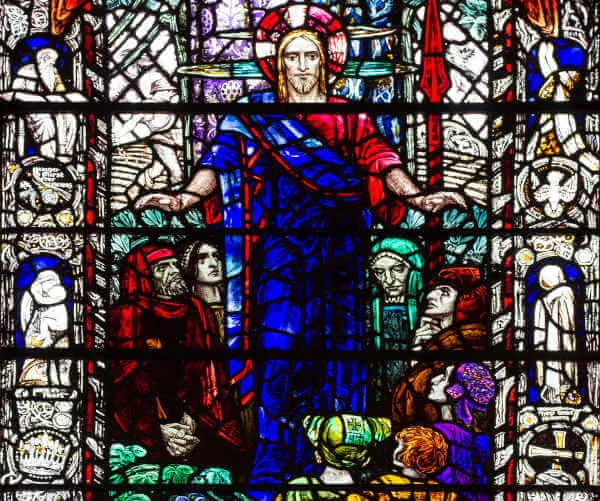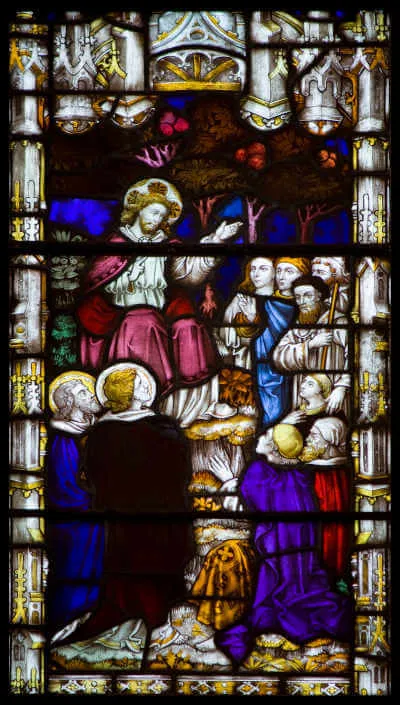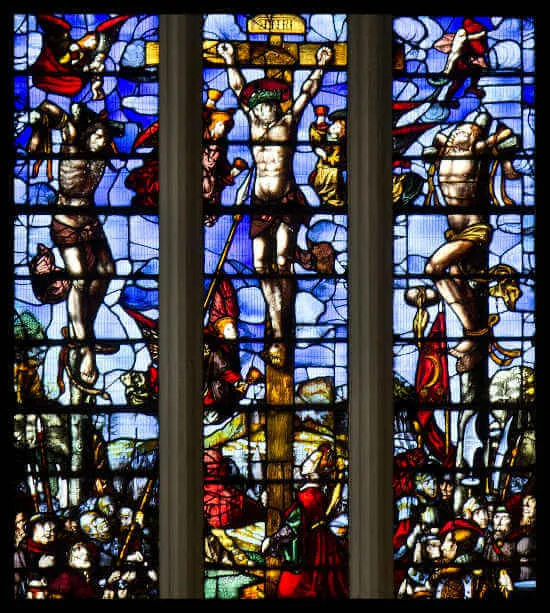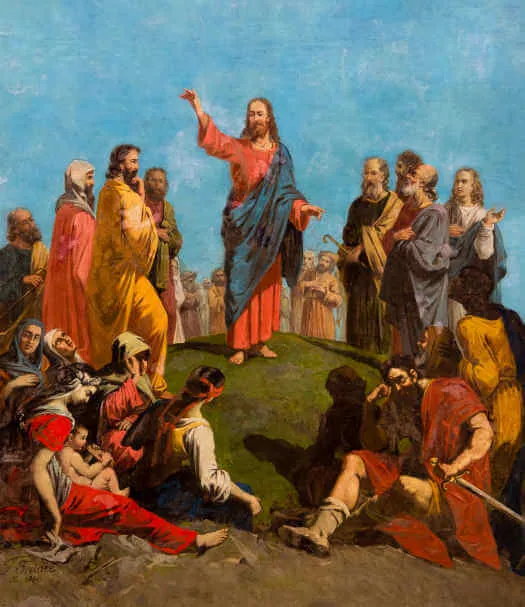Matthew 5:17-18
The New Law of Grace
Jesus said to his disciples: “Do not think that I have come to abolish the law or the prophets. I have come not to abolish but to fulfill. Amen, I say to you, until heaven and earth pass away, not the smallest letter or the smallest part of a letter will pass from the law, until all things have taken place.”
Reflection:
The law and the prophets, as found in the Old Testament, consists of three types. First, there are the moral laws, such as the Ten Commandments, that are primarily based on the natural law of God. By “natural law,” we mean that our human reason can understand their truthfulness, such as with “Thou shall not kill, steal, etc.” Second, there were many liturgical precepts that were laid down and practiced as a preparation for and prefiguration of their ultimate liturgical fulfillment. The fulfillment is now found in the sacramental life of the Church. Third, there were various legal precepts that gave specific directions on daily living. These laws include instructions on food, relations with others, how to treat foreigners, cleansings, purifications of utensils, tithing, and much more.
In our Gospel today, Jesus essentially says two things. First, regarding the legal and liturgical precepts, He says that He came to “fulfill” them. Thus, Christians are no longer bound by these Old Testament legal and liturgical laws, in that we are now called to a much higher fulfillment of them all. But as for the moral laws, especially those found in the Ten Commandments, not a single precept taught is abolished. Instead, these Commandments are deepened, and the call to moral perfection is now much clearer. It is for this reason that Jesus goes on to say, “Therefore, whoever breaks one of the least of these commandments and teaches others to do so will be called least in the Kingdom of heaven. But whoever obeys and teaches these commandments will be called greatest in the Kingdom of heaven.”
It’s important to understand that those who lived before the time of Christ were not held to the same standard as we are today. That’s because they did not enjoy the gift of grace that was won by the Cross and is bestowed by the Holy Spirit. Today, we have so much more and, for that reason, are called to a much greater life of holiness. For example, we no longer celebrate the Passover as a mere remembrance of what God did by setting the Israelites free from slavery to the Egyptians. Today, we celebrate the New Passover through our participation in the Holy Eucharist, and our “remembrance” goes beyond the simple recalling of a memory of old. Our remembrance is one that enables us to actually participate in the saving sacrifice of Christ. We share in the actual event and are partakers of the grace won on the Cross each time we celebrate the Holy Mass. And as for the moral laws of the Old Testament, they become the bottom line of morality. The upper limit is now much higher. We are to love our enemies and pray for those who persecute us. We are to lay down our lives for others and take up our crosses daily to follow Jesus. We are called to the perfection of sacrificial love, and that is only possible by our sharing in the very life, death and resurrection of Christ our Lord.
Reflect, today, upon the very high calling you have been given by our Lord. It’s not enough to simply do the bare minimum in our worship and moral life. Doing so may permit you to be “least in the Kingdom of heaven,” but God wants you to share in His greatness. He calls you to be among the “greatest in the Kingdom of heaven.” Do you understand your high calling? Do you have the perfection of holiness as your goal? Commit yourself to the full participation in the New Law of Christ and you will be eternally grateful that you did.
Source: https://catholic-daily-reflections.com/2024/06/11/the-new-law-of-grace-3/













